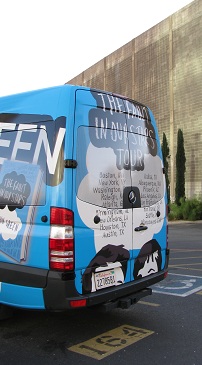This year I got to be a part of the William Morris Seminar. The purpose is to train new people to be part of book and media evaluation committees for ALSC, the Association for Library Service to Children. This is the group that awards the Newbery, Caldecott, Geisel, Siebert, Odyssey, and other medals. The seminar was made possible from a grant by William Morris, and is an invitational seminar presented every two years. I applied each of the three times it has been offered, and this time was selected to participate.
Part of the thrill was getting to meet and talk with a group of 30 people as excited about Book Evaluation as I am. Just like me, these people got excited talking about the strengths and weaknesses of children’s books published last year.
Our speakers were people who have served on multiple committees, and who have recently chaired committees. They have lots of knowledge of the process and lots of experience with making a good discussion happen.
The first speaker of the morning was Vicky Smith talking about “The Alchemy of Book Evaluation.” I’ll give some of my notes from her talk.
She said when you’re assigned to a book evaluation committee, first, you need to evaluate yourself. Because, after all, “Text is context.”
She did say that, as a former English major, she is hyperaware of the Intentional Fallacy – the false idea that anyone can know what the author originally intended.
You should know the sort of reader you are: Fast or slow? Easily distracted or easily submerged in a book? Do you read for language, character, plot, or theme? What books did you love when you were 12 years old?
When you’re on an ALSC committee, you have to transcend the reader you are. For example, if you’re a plot-driven reader, you’re good at seeing how the plot works – but you need to overcome that.
Do you have biases? Your biases can help illuminate a book, but also blind you.
What do you know? Use your expertise without Hubris. A little bit of knowledge can be a dangerous thing.
Beware of Hubris!
Know what you don’t know and be open to the book. Understand your context. The book you are evaluating was not written for you. You are not evaluating the book for personal pleasure reading.
Understand who the book is for. Some books are specifically gender-skewed, ability-skewed, etc. You just need to understand who it’s directed for.
Books may not be literarily spectacular, but still important.
Who is the book for? What is the book for?
Is joy and fun any less important than big deep messages?
Why are you evaluating this book? Your committee’s charge is important.
You need to get over wanting a book you can use with your kids.
Greet the book on its own terms. Think about: What does this book do, as opposed to: What doesn’t it do?
Every book deserves the most open mind possible.
What does this book do? What doesn’t it do? That’s not necessarily a bad thing.
Remember that “offensive” has a million different definitions. What, in particular, do you think is offensive?
Does the book do what it does with integrity? If there are stereotypes, is that a bad thing?
Pay attention to your reactions to the book.
Don’t go into your encounter with the book looking for flaws. If you do find a flaw, you’re obligated to check. (Find an expert.)
Everybody has a different opinion of what is a fatal flaw. Why is it there? Is it really a flaw?
Book Evaluation is hugely relative. We can’t apply standards that give the same result every time.
***
That was the first talk we got to listen to. It made us eager to begin! We’d all read a list of books for small group discussion later.
This talk was interesting to me because it did point out to me that a Book Evaluation committee is very different than what I am trying to do on my blog. On my blog, I’m giving my own reaction to the book. But in a committee, you’re looking at a book as children’s literature. You want to observe your own reactions, but you’re trying to evaluate the underlying quality of the book for its true audience.
However, even though this isn’t what I’m trying to do on my blog, this is all very good advice for Readers’ Advisory on my job. It’s good to know a book’s strengths so I can figure out who would enjoy the book. Readers’ Advisory is also not about what I like or don’t like; it’s about finding the right book for the reader in front of you at this particular time.
 Then talking about teens: “Teens are having a lot of interesting things happen to them for the first time.”
Then talking about teens: “Teens are having a lot of interesting things happen to them for the first time.”